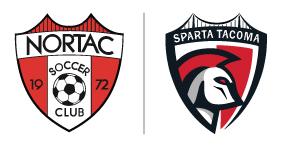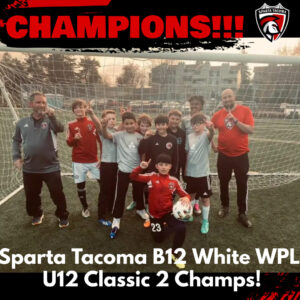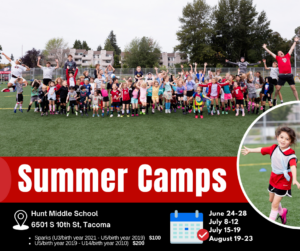Parent's Guide
Helping your kids develop: A parent's guide
Development is an inefficient process. Some kids make progress very quickly. Some improve in fits and spurts. Some seem to barely improve at all and then one day a switch seems to "just flick on". Every child is different. But in general, it is safe to say that the players who tend to develop the fastest often have one thing in common: they are exposed to soccer outside the training sessions and organized games.
- Kids who frequently play soccer at recess or with friends and family members will improve more quickly than those who do not
- Kids who play with a ball on their own outside of training will improve faster than those who do not
- Kids who play with their parents and siblings will improve faster than those who do not
- Kids who watch a lot of soccer will improve faster than those who do not
- *****Important: When very young kids (U8 and under) play on their own or with others, those who mostly dribble the ball will improve much faster than those who mostly kick the ball back and forth. Although most really young kids love to kick the ball as far and hard as they can, just whacking the ball around will not help you become a good soccer player.
The question is: how do we get our kids to be involved in these activities, and the answer is that we have to foster an enthusiasm and love for the game in our kids. If your child comes from a family that is involved in and loves the sport, then your child is going to have a greater likelihood of adopting this attitude, because enthusiasm is something that is caught, not taught.
We've never seen a case where an adult could make a kid love or be enthusiastic about any sport. Either there is a spark there or there is not. But I have seen plenty of adults (both coaches and parents) who could either fan that spark into a flame or else extinguish that spark entirely. I came from a household that regarded soccer as "that funny game with foreigners running around in shorts", but when my parents saw the enthusiasm that I had for the game, they were very quick to encourage and support me in every way they could. The things they did for me are the same things you can do for your own kids:
- Encourage them to play and practice on their own (the more meaningful touches on the ball, the better they will get)
- Seek out opportunities for them to play (leagues, camps, clinics, indoor, pick-up games with friends, etc)
- Support and encourage them unconditionally. Don't be constantly critiquing or giving them advice unless they are seeking it out from you. They don't have to perform at a superstar level to enjoy the game.
- Develop your own interest in, knowledge of, and enthusiasm for the game
- Play with them! You don't have to be a superstar to play soccer with a 6-year-old.
To this final point, which some experts see as the real "X Factor" in early player development, NORTAC is developing a program called Play At Home which will provide tips and suggestions to help you and your child do exactly that
Many well-meaning parents who wanted to push their kids to be great soccer players have only succeeded in making them hate the game. The most common ways to do this, especially at these younger ages, are to:
- Force the kids to play against their will. (making them try it for a season is fine, but if they don't like it, it might be better to try a different activity or wait until they are more interested)
- Be overly critical of a players performance/ ability level/ attention span/ work rate, etc (especially when players are compared negatively to other players who may be older or have athletic or maturity advantages over the other kids)
- Place an emphasis on winning over having fun (For every winner there will always be a loser. If the game is only fun if you win, why bother? Why would a kid want to do an activity that may only be "fun" half the time?)
- Turn the game into "work" instead of "play" (which did you prefer when you were seven?)
The bottom line is that soccer for young players is not about winning trophies and building champion teams, it is about fostering a love for the game and hopefully building a basis for healthy lifetime participation in sport. The great thing about this age group is that the basis for this preparation is the same regardless of whether the player is going to be a future recreational player duffing around with their friends or a highly competitive college or even national team player someday. So we all need to do our part to kindle that love and enthusiasm for the sport because that is going to be the foundation for success
2024 Fall Registration open, deadline July 26
NORTAC Programming Fall 2024 We are excited to announce Fall registration is live! Please be sure to read all the information about our Fall season…
Read MoreFirst Place Finish
First Place Finish CONGRATULATIONS to Coach Gray, Assistant Coach Wynkoop, Assistant Coach Doyle, and the Sparta Tacoma B12 White team on their first place finish…
Read More2024 Summer Camps
2024 Summer Camps Summer is right around the corner. Join our super fun summer camps this 2024. Sparta Tacoma, NORTAC Programming and all new players…
Read More


